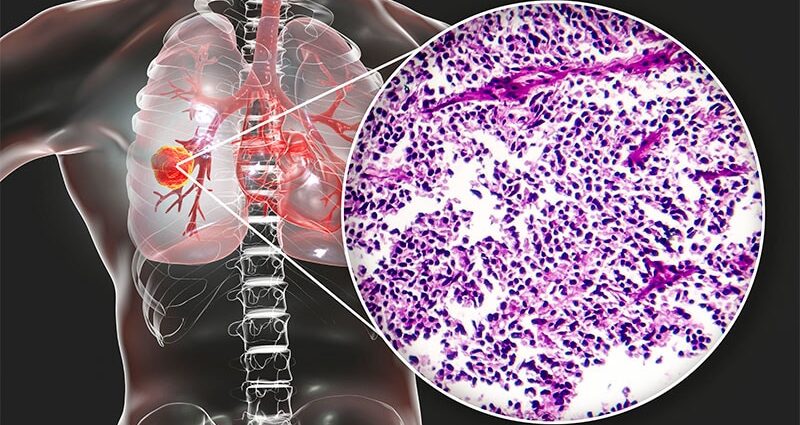Medbrief
Immune-Related Adverse Events Associated With Better Survival Outcomes in Extensive-Stage Small Cell Lung Cancer
TOPLINE:
Immune-related adverse events (irAEs) were associated with significantly improved progression-free survival (PFS) and overall survival (OS) in patients with extensive-stage small cell lung cancer (SCLC) who received chemoimmunotherapy compared with that in those who did not experience such events.
METHODOLOGY:
- Researchers conducted a retrospective analysis of 399 consecutive patients (median age, 66 years; 55.4% men) with extensive-stage SCLC who received first-line chemoimmunotherapy between January 2020 and September 2024.
- Data collection encompassed demographic and clinical information from five centres located in the United Kingdom and Italy.
- Researchers estimated PFS and OS using the Kaplan-Meier method, which were compared between patients with and without irAEs.
TAKEAWAY:
- The median follow-up duration was 15.0 months, with an overall response rate of 80.3%, median PFS of 6.0 months, and median OS of 10.4 months.
- Overall, irAEs occurred in 30.6% of patients, with skin reactions being the most common (11.0%) and a median time to onset of the first irAE of 171 days.
- Patients who experienced irAEs had significantly longer median PFS (10.8 vs 5.3 months; P < .001) and median OS (18.8 vs 7.6 months; P < .001) than those who did not.
- A multivariate analysis confirmed that irAEs were associated with improved OS (hazard ratio, 0.64; 95% CI, 0.51-0.80; P < .001) and showed a trend towards longer PFS (P = .028).
IN PRACTICE:
“This is the largest retrospective study to assess and demonstrate that immune-related toxicity is positively associated with improved clinical outcomes in patients with ES-SCLC [extensive-stage SCLC] receiving first-line immunotherapy,” the authors wrote.
SOURCE:
This study was led by Federico Monaca, Università Cattolica del Sacro Cuore, Rome, Italy. It was published online in the European Journal of Cancer.
LIMITATIONS:
The retrospective design and the assessment of toxicities may have introduced information bias. The relatively small sample size may have limited the ability to thoroughly investigate associations between specific irAE subtypes, multiorgan toxicities, and clinical outcomes. Additionally, due to the retrospective nature of the study, physicians may not have immediately identified immune-related toxicities, potentially leading to an underestimation of the number of patients receiving appropriate management.
DISCLOSURES:
This study did not receive any specific grant from funding agencies in the public, commercial, or not-for-profit sectors. The authors reported having no relevant conflicts of interest.
This article was created using several editorial tools, including AI, as part of the process. Human editors reviewed this content before publication.

